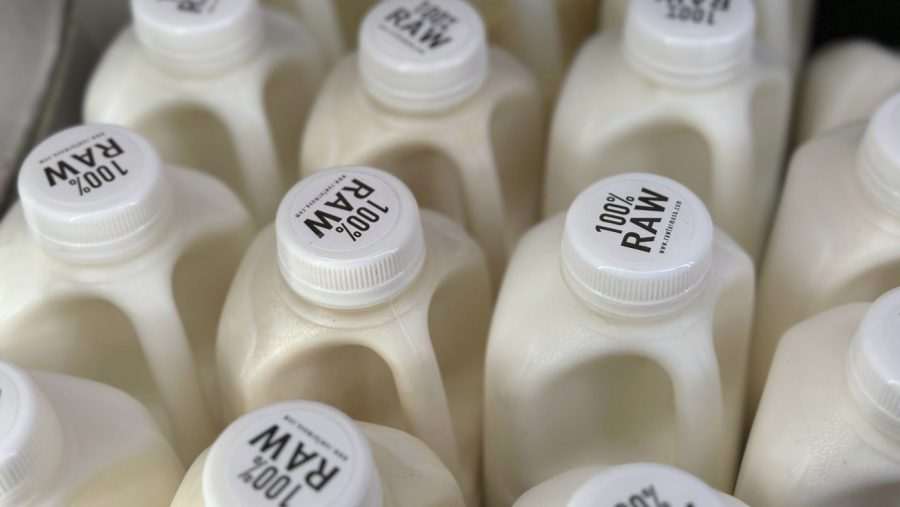The nation’s milk supply must be tested for the bird flu virus H5N1 under a new order announced Friday by the U.S. Department of Agriculture (USDA).
The rules require unpasteurized milk samples from dairy farms, bulk milk transporters or dairy processing facilities to be collected and shared with USDA for testing upon request from the government.
Herd owners with cattle that tested positive for the virus will also be required to provide epidemiological details to help with contact tracing and disease surveillance under the new rules. It also requires private laboratories and state veterinarians to report positive results that come from tests done on raw milk samples drawn as part of the new strategy.
The announcement comes more than a year after the virus began circulating through dairy cattle, and as criticism mounts about the lack of testing and tracking of people or animals who may be infected with the virus.
Agriculture Secretary Tom Vilsack in a statement said the new strategy is aimed at better controlling the outbreak.
It “will give farmers and farmworkers better confidence in the safety of their animals and ability to protect themselves, and it will put us on a path to quickly controlling and stopping the virus’ spread nationwide,” Vilsack said.
The new rules replace existing voluntary guidance, which had made it difficult to track the virus’s spread because many farms weren’t complying with testing either farmworkers or cattle herds.
The department said a “structured, uniform, and mandatory testing system” will help swiftly identify which states, and specific herds within them, are affected with H5N1 and “inform critical efforts to protect farmworkers to help lower their risk of exposure.”
The first round of testing is scheduled to begin the week of Dec. 16 in California, Colorado, Michigan, Mississippi, Oregon and Pennsylvania.
USDA it still requires the mandatory testing of lactating dairy cows prior to interstate shipment and requires that all privately owned laboratories and state veterinarians report positive test results connected with those tests. That requirement was instituted in April.

